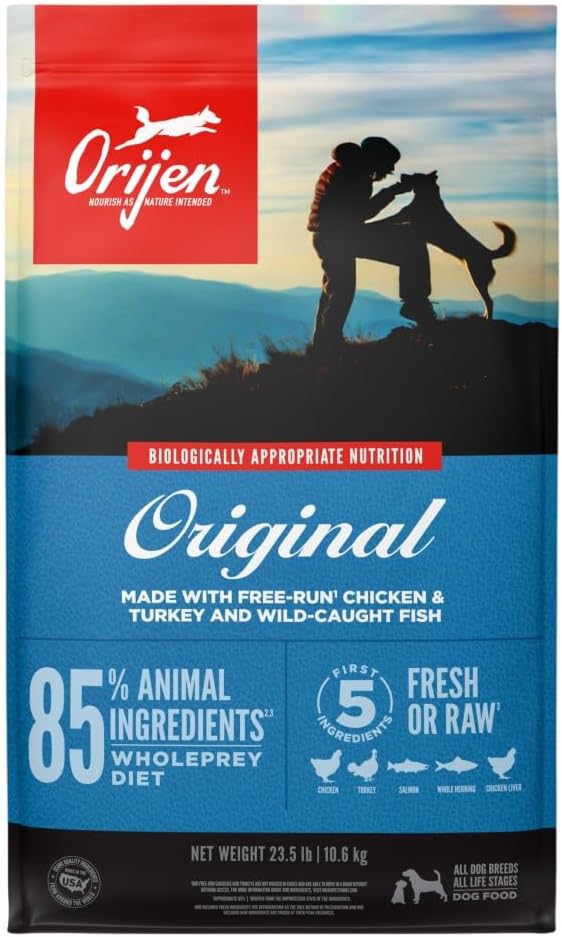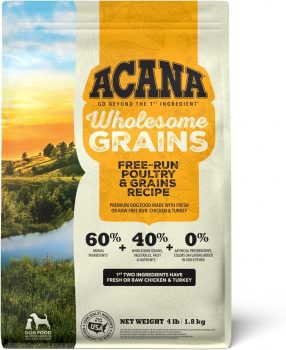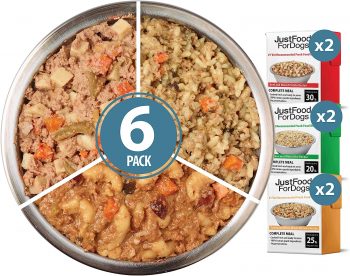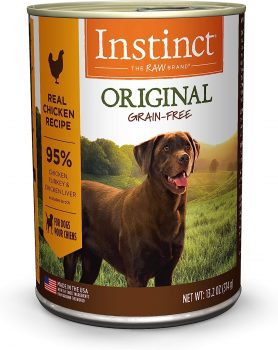Owning a Doberman is a rewarding experience. These loyal, intelligent, and elegant dogs are excellent companions, but as an owner, it’s crucial to ensure their nutritional needs are met for a healthy, vibrant life. While Dobermans are large dogs with a lean physique and a lot of energy, they also have specific dietary requirements that need consideration. This article dives into how much you should feed a Doberman, taking into account factors like their activity level, age, health, and the type of food you’re using.
1. Understanding Doberman’s Nutritional Needs
Dobermans are active and athletic dogs, requiring a balanced diet rich in protein to support their muscle mass, fats for energy, and essential vitamins and minerals for overall health. Their food should primarily come from high-quality sources to ensure they get the most out of every meal. On average, an adult Doberman will require about 20-30 calories per pound of body weight. This means a 70-pound Doberman might need between 1,400 to 2,100 calories a day, depending on their activity levels.
2. Feeding Puppies vs. Adults
Puppies:
Doberman puppies grow rapidly and have different nutritional requirements than adults. They need more frequent meals — ideally, four times a day until six months of age, then reduce to three times until they’re a year old. Puppies generally require about 50 calories per pound of body weight. Thus, a 20-pound puppy might need around 1,000 calories per day.
Adults:
Once Dobermans reach their adult size, their metabolism slows a bit. Feeding them twice a day is usually sufficient. Remember to adjust their caloric intake based on their activity levels.
3. Factors Affecting Dietary Needs
Activity Level:
A highly active Doberman will burn more calories and may require more food than a sedentary one. Dogs that engage in agility, running, or other high-energy activities might need more calories to sustain their energy levels.
Age and Health:
Senior Dobermans may not be as active and might require fewer calories. At the same time, certain health issues can affect a dog’s dietary needs. Always consult a vet if unsure about how much to feed your Doberman due to health concerns.
4. Choosing the Right Food
High-quality commercial dog foods typically provide a balanced diet for Dobermans. When selecting food, ensure real meat is the primary ingredient, with minimal fillers or artificial additives. Raw diets are another option but require careful planning to ensure balanced nutrition. Home-cooked meals can be rewarding, but like raw diets, they require a proper understanding of canine nutritional needs.
5. Monthly Feeding Costs
The monthly cost of feeding a Doberman can vary based on where you live, the brand and type of food you choose, and your dog’s specific needs. On average, feeding a high-quality commercial dog food might cost between $60 to $120 per month for an adult Doberman. Raw or home-cooked diets might be more expensive due to the cost of quality meats and supplements. Always factor in occasional treats and potential dietary supplements when budgeting.
6. Signs You’re Overfeeding or Underfeeding
Monitor your Doberman’s weight and body condition. Ribs should be palpable but not visibly protruding. If you notice your Doberman gaining unnecessary weight or looking undernourished, adjust the food amount. Regular vet check-ups can also ensure you’re feeding the right amount.
Our 5 Top Foods for Dobermans
The diets were selected by our founder Justin Palmer, a certified canine nutrition expert, specifically with Dobermans in mind:
| Food | Pros | Cons |
|---|---|---|
|
|
|
|

Check Today's Price on: |
|
|

Check Today's Price on: |
|
|

Check Today's Price on: |
|
|

Check Today's Price on: |
|
|
Conclusion
Feeding your Doberman a balanced and appropriate amount of food is pivotal for their overall health and well-being. Being proactive about their diet will ensure they remain active, healthy, and by your side for years to come. Always consult with a veterinarian regarding any specific concerns about your Doberman’s diet.
Frequently Asked Questions About Feeding a Doberman

1. How many times a day should I feed my adult Doberman?
Most adult Dobermans thrive on being fed twice a day, once in the morning and once in the evening. This routine helps in maintaining a stable metabolism and ensures they get the necessary nutrients throughout the day. If your dog has specific health concerns, consult with your veterinarian for a more tailored feeding schedule.
2. Can I feed my Doberman a raw diet?
Yes, many Doberman owners opt for a raw diet. However, it’s essential to ensure the diet is balanced and provides all the necessary nutrients. Consulting with a vet or a canine nutritionist can help create a well-rounded raw meal plan for your dog.
3. What ingredients should I look for in commercial dog food for my Doberman?
When selecting commercial dog food, ensure that real meat (like chicken, beef, or lamb) is the primary ingredient. Avoid foods with excessive fillers, by-products, or artificial additives. High-quality foods will also contain essential vitamins, minerals, and a balanced ratio of protein, fats, and carbohydrates.
4. Are grain-free diets suitable for Dobermans?
Grain-free diets can be suitable for Dobermans, especially if they have grain allergies. However, some studies suggest a potential link between grain-free diets and heart problems in dogs. It’s crucial to discuss with your vet before making significant dietary changes.
5. How can I tell if I’m overfeeding my Doberman?
If your Doberman gains unnecessary weight, becomes lethargic, or has a visibly rounded abdomen, these can be signs of overfeeding. It’s essential to regularly monitor your dog’s weight and body condition and adjust the food amount as needed.
6. Should I give dietary supplements to my Doberman?
In most cases, a balanced commercial diet provides all the necessary nutrients for your Doberman. However, based on specific health concerns or dietary choices (like raw feeding), supplements might be beneficial. Always consult with a vet before introducing any supplements.
7. Is it okay to give table scraps to my Doberman?
While occasional healthy table scraps in moderation can be a treat, it’s crucial to avoid giving foods that are toxic to dogs. Regularly feeding table scraps can also lead to obesity and an imbalance in nutrition.
8. How much water should my Doberman drink daily?
On average, a dog should drink about an ounce of water per pound of body weight daily. So, a 70-pound Doberman might need about 70 ounces of water daily. Ensure fresh water is always available for your dog.
9. Can I feed my Doberman puppy adult dog food?
It’s recommended to feed Doberman puppies a formula designed for large breed puppies, as it ensures they get the right nutrients for their rapid growth phase. Transition to adult dog food after they reach their adult size, usually around one year of age.
10. How do I transition my Doberman to a new type of food?
When changing your Doberman’s diet, do so gradually over 7-10 days. Start by mixing a small amount of the new food with the old, gradually increasing the new food’s proportion. This slow transition helps prevent digestive upset and allows your dog to adjust to the new diet.
 Check Today's Price on:
Check Today's Price on: Toledo, United States.
Toledo, United States.